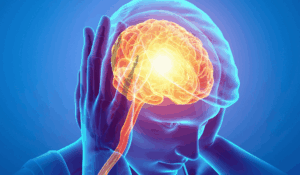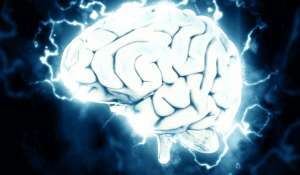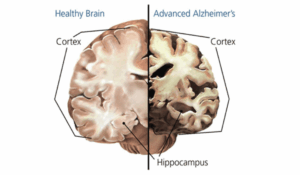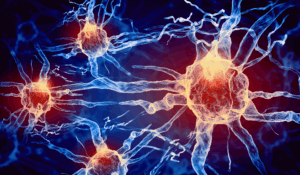Anxiety
Anxiety | Dr. Mahmood Yunus Usmani
Anxiety Disorders
Mental wellness and anxiety management therapies
- Depression
- Anxiety Neurosis
- Neuritis
- Insomnia
- Headache
- Migrain
- Parkinsonism
- Weakness of brain
- Dementia
- Alzheimer's
- OCD
- Nerve weakness

Depression is a serious mental health condition that affects how you feel, think, and act. It goes beyond sadness and can interfere with daily life.
Causes of depression can include genetic factors, stressful life events, trauma, hormonal imbalances, and chronic medical conditions. Social isolation and negative thought patterns may also contribute.
Symptoms often include persistent sadness, loss of interest in activities, changes in appetite or sleep patterns, low energy, feelings of worthlessness, difficulty concentrating, and even thoughts of self-harm.
Prevention focuses on maintaining a healthy lifestyle. Building strong relationships, managing stress through relaxation techniques, staying physically active, eating a balanced diet, and seeking support early when feeling overwhelmed can help reduce the risk. Prioritizing self-care and maintaining a routine also play a crucial role in emotional resilience.
Early recognition and supportive environments are key to managing depression effectively. Remember, it’s important to reach out — you are not alone.

Anxiety Neurosis, commonly known as generalized anxiety disorder, is a condition marked by excessive, uncontrollable worry about everyday situations. It often interferes with daily functioning and overall well-being.
Causes can include genetic predisposition, long-term stress, traumatic experiences, personality traits, and imbalances in brain chemistry. Environmental factors like early childhood adversity or chronic health issues can also play a role.
Symptoms may involve persistent nervousness, restlessness, rapid heartbeat, muscle tension, difficulty concentrating, sleep disturbances, and a constant sense of impending danger or doom.
Prevention focuses on maintaining emotional and physical health. Practicing relaxation techniques like deep breathing and meditation, developing a regular exercise routine, limiting caffeine and alcohol, establishing a structured daily schedule, and building strong social connections can help manage stress levels. Early intervention and learning healthy coping strategies are crucial to prevent worsening of symptoms.
Staying mindful, nurturing positive habits, and seeking support when needed are powerful steps toward a calmer, more balanced life.

Neuritis refers to the inflammation of one or more nerves, leading to pain, loss of function, or sensory disturbances. It can affect any part of the body and may range from mild to severe.
Causes of neuritis can include infections (viral or bacterial), autoimmune diseases, physical injury, prolonged pressure on a nerve, poor nutrition (especially vitamin deficiencies), and exposure to toxins. Sometimes, systemic conditions like diabetes can also lead to nerve inflammation.
Symptoms often involve sharp or burning pain, tingling sensations, numbness, muscle weakness, and sensitivity in the affected area. In severe cases, it can lead to loss of reflexes or motor skills.
Prevention focuses on maintaining overall nerve health. Protecting the body from injuries, managing chronic conditions like diabetes, ensuring a balanced diet rich in vitamins (especially B-complex), avoiding excessive alcohol consumption, practicing good posture, and staying physically active can help reduce the risk. Early treatment of infections and regular health checkups also play a key role.
Taking proactive steps toward a healthy lifestyle can protect your nerves and enhance your overall quality of life.

Insomnia is a common sleep disorder that makes it difficult to fall asleep, stay asleep, or get restful sleep, leading to daytime fatigue and reduced quality of life.
Causes of insomnia can include stress, anxiety, depression, poor sleep habits, irregular sleep schedules, chronic pain, certain medical conditions, and lifestyle factors such as excessive caffeine or screen time before bed.
Symptoms often include difficulty falling asleep, waking up frequently during the night, waking up too early, feeling tired upon waking, irritability, difficulty concentrating, and decreased performance at work or school.
Prevention focuses on developing healthy sleep habits. Maintaining a consistent sleep schedule, creating a relaxing bedtime routine, limiting caffeine and electronic device use in the evening, managing stress effectively, and ensuring a comfortable sleep environment can significantly improve sleep quality. Physical activity during the day and avoiding heavy meals late at night also contribute to better rest.
Prioritizing sleep as a vital part of your wellness routine helps strengthen both physical and mental health.

Headache is one of the most common health complaints, characterized by pain or discomfort in the head, scalp, or neck. It can range from mild to severe and affect daily activities if persistent.
Causes of headaches can include stress, dehydration, lack of sleep, eye strain, poor posture, skipping meals, hormonal changes, or underlying conditions like sinus infections or migraines. Environmental factors such as loud noise, strong smells, or weather changes can also trigger headaches.
Symptoms vary depending on the type but may involve dull, sharp, throbbing, or constant pain in different areas of the head. Some headaches are accompanied by nausea, sensitivity to light or sound, and visual disturbances.
Prevention focuses on identifying and managing triggers. Maintaining regular sleep patterns, staying hydrated, practicing stress management techniques, eating balanced meals on time, reducing screen time, and maintaining good posture can help minimize headaches. Regular physical activity and relaxation practices like yoga or meditation also support overall well-being.
Listening to your body and adopting healthy habits can significantly reduce the frequency and intensity of headaches.

Migraine is a neurological condition marked by intense, throbbing headaches often accompanied by other symptoms. It can significantly affect daily life and productivity.
Causes of migraine are not fully understood but are believed to involve genetic factors, brain chemical imbalances, and environmental triggers. Common triggers include stress, hormonal changes, certain foods, strong smells, bright lights, weather changes, and irregular sleep patterns.
Symptoms typically include a severe, pulsating headache usually on one side of the head, sensitivity to light and sound, nausea, vomiting, and visual disturbances known as auras. Some people also experience dizziness, fatigue, and mood changes before or during an attack.
Prevention focuses on recognizing and avoiding individual triggers. Maintaining a regular sleep schedule, managing stress through relaxation techniques, staying hydrated, eating balanced meals, avoiding known food triggers (like caffeine, chocolate, or processed foods), and creating a calm environment can help reduce the frequency and severity of migraines.
Early identification of symptoms and adopting healthy lifestyle habits are key to managing migraines effectively and improving overall quality of life.

Parkinsonism refers to a group of neurological disorders that cause movement problems similar to those seen in Parkinson’s disease. It affects the brain’s ability to control movement smoothly and efficiently.
Causes can include neurodegenerative diseases like Parkinson’s disease itself, certain medications, repeated head trauma, infections, or exposure to environmental toxins. In some cases, the exact cause remains unclear.
Symptoms typically involve tremors, stiffness, slowed movements (bradykinesia), impaired balance and coordination, and changes in posture. Some individuals may also experience facial masking, difficulty speaking, or smaller handwriting.
Prevention focuses on maintaining brain health and reducing risk factors. Wearing protective gear to prevent head injuries, avoiding prolonged exposure to pesticides or toxins, adopting a healthy diet rich in antioxidants, staying physically active, and engaging in mentally stimulating activities can support overall neurological health. Managing chronic health conditions effectively is also important.
While not all cases can be prevented, leading a healthy and active lifestyle helps support brain function and overall well-being.

Weakness of the brain refers to a decline in cognitive functions such as memory, concentration, and mental clarity. It can affect daily performance, emotional balance, and overall quality of life.
Causes can include chronic stress, poor nutrition, lack of sleep, mental exhaustion, aging, infections, trauma, and underlying neurological conditions. Emotional factors like anxiety and depression can also contribute to cognitive decline.
Symptoms often involve forgetfulness, difficulty concentrating, mental fatigue, confusion, slower thinking, mood swings, and decreased problem-solving ability. In severe cases, it can impact personal and professional relationships.
Prevention focuses on nurturing brain health through a holistic lifestyle. Maintaining a balanced diet rich in essential nutrients, engaging in regular physical exercise, practicing mindfulness and stress management, ensuring adequate sleep, challenging the brain with mental activities, and staying socially connected are key strategies. Limiting alcohol, avoiding smoking, and protecting the head from injury are also important steps.
Prioritizing brain health today can help maintain sharpness, emotional strength, and cognitive resilience throughout life.

Dementia is a group of conditions characterized by a decline in memory, thinking, behavior, and the ability to perform everyday activities. It is not a normal part of aging but is more common in older adults.
Causes of dementia include neurodegenerative diseases like Alzheimer’s disease, stroke, head injuries, infections affecting the brain, and certain genetic factors. Long-term lifestyle factors such as poor diet, lack of exercise, and smoking can also increase the risk.
Symptoms often begin with mild memory loss and confusion but gradually worsen. They may include difficulty communicating, disorientation, poor judgment, mood changes, and withdrawal from social activities. Over time, individuals may struggle with basic tasks and lose independence.
Prevention focuses on supporting brain and heart health. Maintaining a healthy diet, regular physical exercise, mental stimulation through learning and activities, good sleep hygiene, controlling blood pressure and cholesterol, avoiding tobacco and excessive alcohol, and staying socially engaged can help reduce the risk. Early diagnosis and supportive care can slow progression and improve quality of life.
Taking care of your brain today helps protect your future independence and well-being.
 Alzheimer’s disease is a progressive neurological disorder that leads to memory loss, cognitive decline, and changes in behavior. It is the most common cause of dementia, primarily affecting older adults.
Alzheimer’s disease is a progressive neurological disorder that leads to memory loss, cognitive decline, and changes in behavior. It is the most common cause of dementia, primarily affecting older adults.
Causes of Alzheimer’s are believed to involve a combination of genetic, environmental, and lifestyle factors. Abnormal protein build-up in the brain, age-related changes, family history, heart disease, and head injuries are known risk contributors.
Symptoms typically start with mild memory problems and confusion. Over time, individuals may struggle to recognize familiar people, lose the ability to plan or solve problems, have trouble speaking or writing, become disoriented, and experience mood and personality changes. Eventually, it affects the ability to perform daily tasks independently.
Prevention focuses on promoting overall brain and heart health. Staying mentally active, engaging in regular physical exercise, eating a balanced diet rich in fruits, vegetables, and healthy fats, managing blood pressure and cholesterol, getting quality sleep, maintaining strong social connections, and avoiding smoking and excessive alcohol use can help lower risk.
A healthy lifestyle and early intervention play vital roles in supporting brain health and maintaining independence for longer.

Obsessive-Compulsive Disorder (OCD) is a mental health condition marked by unwanted, recurring thoughts (obsessions) and repetitive behaviors or mental acts (compulsions) aimed at reducing anxiety.
Causes of OCD are thought to involve a combination of genetic, neurological, behavioral, cognitive, and environmental factors. Family history, chemical imbalances in the brain (especially serotonin), stressful life events, and personality traits like high levels of perfectionism may contribute.
Symptoms often include intrusive fears or worries (such as fear of germs or harm) and compulsive behaviors like excessive cleaning, checking, counting, or arranging things in a specific way. These behaviors are performed to reduce anxiety but usually provide only temporary relief, often interfering with daily life.
Prevention focuses on managing stress and building emotional resilience. Early recognition of obsessive thoughts, practicing healthy coping strategies, maintaining a balanced lifestyle, and seeking supportive therapy when symptoms first appear can help in controlling the severity. Regular exercise, mindfulness techniques, and engaging in fulfilling activities also support mental well-being.
Awareness, early action, and self-care can make a significant difference in managing OCD and improving quality of life.

Nerve weakness, also known as peripheral neuropathy, refers to damage or dysfunction of the nerves outside the brain and spinal cord. It can affect sensation, movement, and organ function, depending on the nerves involved.
Causes of nerve weakness include diabetes, vitamin deficiencies (especially B vitamins), infections, autoimmune diseases, physical injuries, prolonged pressure on nerves, and exposure to toxins. Lifestyle factors like poor nutrition, excessive alcohol consumption, and lack of physical activity can also contribute.
Symptoms often involve tingling, numbness, burning or sharp pain, muscle weakness, and loss of coordination. Some individuals may experience heightened sensitivity to touch or a feeling of heaviness in the limbs, making daily tasks more difficult.
Prevention focuses on protecting nerve health through a healthy lifestyle. Managing chronic diseases like diabetes, maintaining a balanced diet rich in vitamins and minerals, engaging in regular physical activity, avoiding excessive alcohol, quitting smoking, and protecting the body from injuries can help prevent nerve damage. Regular health checkups also allow early detection and management of risk factors.
Caring for your nerves is essential for maintaining strength, mobility, and overall vitality.
About Anxiety
Anxiety is your body’s natural response to stress, alerting you to potential dangers and helping you stay focused. But when anxiety becomes constant or overwhelming, it can disrupt your daily life, comfort, and overall well-being. At Usmani’s Clinic, we believe early awareness and support can prevent long-term mental health challenges.
Anxiety disorders include a wide range of conditions that affect how you think, feel, and behave. These may be occasional or chronic and can range from mild uneasiness to severe, persistent fear and worry that impact your quality of life.
Causes of Anxiety
Several factors can contribute to anxiety:
Genetics and Family History
Chronic Stress and Traumatic Events
Hormonal Imbalances
Poor Sleep Patterns
Substance Abuse (alcohol, caffeine, drugs)
Medical Conditions (like thyroid issues)
Unhealthy Lifestyle and Poor Diet
Negative Thinking Patterns
Symptoms of Anxiety
Persistent feelings of worry or fear
Restlessness or feeling on edge
Difficulty concentrating or mind going blank
Sleep disturbances or insomnia
Rapid heartbeat or shortness of breath
Muscle tension or body aches
Gastrointestinal discomfort (nausea, upset stomach)
Treatments
Contact Us
- Shah Market Opp. PNB bank, Shahbad Gate, Rampur U.P 244901
- +91 99274 25447
- iinfo@drmyu.com
